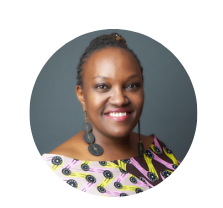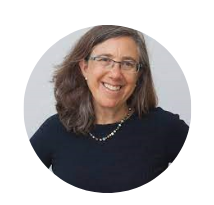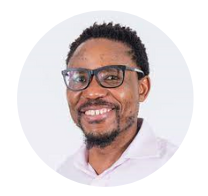New giving vehicles and tools have proliferated in recent years. The conventional foundation model has been supplanted by the growth of donor advised funds, limited liability companies and personalised giving services. At the same time, technology is providing more direct means of fundraising and giving and bringing in new people, donors and beneficiaries. Depending on their level of development, different regions have devised their own vehicles.
New means of giving might seem a cause for celebration – but often the new vehicles have attracted as much criticism as praise. Is this fair? What are the implications of these changes and what lies behind them? Is the conventional foundation model being supplanted? Are new means of individual giving transcending donor-grantee divides and producing a move towards greater democracy in philanthropy? Conversely, are new institutional forms making philanthropy more opaque?
These were questions answered in a global discussion on this topic, sponsored by Optimy, based on our new issue.
Moderated by features editor Andrew Milner, the panel included:
- Bhekinkosi Moyo, adjunct professor, Centre on African Philanthropy and Social Investment
- Ray Madoff, professor director, Forum on Philanthropy and the Public Good, Boston College Law School
- Jacqueline Asiimwe, CEO, CivSource Africa
A few highlights from the event:
 Jacqueline said: Even as we consider new tools… giving happens on a spectrum. I think the philanthropy world, which sometimes can be conflated to mostly the western philanthropy world, has been used to the more formalised structures of giving through setting up foundations and through grantmaking. ..‘Philanthropy’ has tended to maybe straightjacket or box people into thinking they can’t give, or that they don’t have anything to give, [and what] we’re trying to say is – no, new tools and ways of giving mean exactly that. You’re democratising philanthropy, that you’re seeing philanthropy on a spectrum and hopefully through that we’re expanding the table at which different kinds of people, processes, communities, sit at the table together to talk about and think about how to advance their communities through the means of generosity they have.
Jacqueline said: Even as we consider new tools… giving happens on a spectrum. I think the philanthropy world, which sometimes can be conflated to mostly the western philanthropy world, has been used to the more formalised structures of giving through setting up foundations and through grantmaking. ..‘Philanthropy’ has tended to maybe straightjacket or box people into thinking they can’t give, or that they don’t have anything to give, [and what] we’re trying to say is – no, new tools and ways of giving mean exactly that. You’re democratising philanthropy, that you’re seeing philanthropy on a spectrum and hopefully through that we’re expanding the table at which different kinds of people, processes, communities, sit at the table together to talk about and think about how to advance their communities through the means of generosity they have.
 Ray: Donor Advised Funds are the new kid on the block and… there’s reason for confusion. ..There is a tendency for models from the United States to be adopted in other countries that want to expand their philanthropy. But we have problems within our rules, and what we want to make sure is that our rules are adopted in ways that promote the results that we want. If you give tax benefits for charitable giving, but the money doesn’t go to charity then the country ends up depleting its tax base but not having much to show for it.
Ray: Donor Advised Funds are the new kid on the block and… there’s reason for confusion. ..There is a tendency for models from the United States to be adopted in other countries that want to expand their philanthropy. But we have problems within our rules, and what we want to make sure is that our rules are adopted in ways that promote the results that we want. If you give tax benefits for charitable giving, but the money doesn’t go to charity then the country ends up depleting its tax base but not having much to show for it.
Ray’s presentation slides can be found here.
 Bhekinkosi: It’s a topic that is very close to my heart. Usually when talking about something new, we are quick to start thinking ‘what is actually new about this?’ Is it a case of new bottle, old wine, where… it still tastes the same, or perhaps even worse. Guest editing this issue was so insightful for me because I could see so many issues emerging… in relation to context. Something that could be a novelty in one region, or in one context, could be an old tradition elsewhere. ..A lot of what is being introduced now as news tools and ways of dealing with climate change, mitigation, adaptation, among others – are things that some regions used to do a long time ago. For example, the drying of food… It’s something that big, international institutions are actually introducing in their programming, but in Africa this is something that has always been done.
Bhekinkosi: It’s a topic that is very close to my heart. Usually when talking about something new, we are quick to start thinking ‘what is actually new about this?’ Is it a case of new bottle, old wine, where… it still tastes the same, or perhaps even worse. Guest editing this issue was so insightful for me because I could see so many issues emerging… in relation to context. Something that could be a novelty in one region, or in one context, could be an old tradition elsewhere. ..A lot of what is being introduced now as news tools and ways of dealing with climate change, mitigation, adaptation, among others – are things that some regions used to do a long time ago. For example, the drying of food… It’s something that big, international institutions are actually introducing in their programming, but in Africa this is something that has always been done.
You can find the full recording here:
Our next Alliance event takes place in July on systems change, in partnership with Rockefeller Philanthropy Advisors. Make sure you are on our mailing list to receive an invite!
Amy McGoldrick is the head of marketing, advertising and events
Credit:Source link



